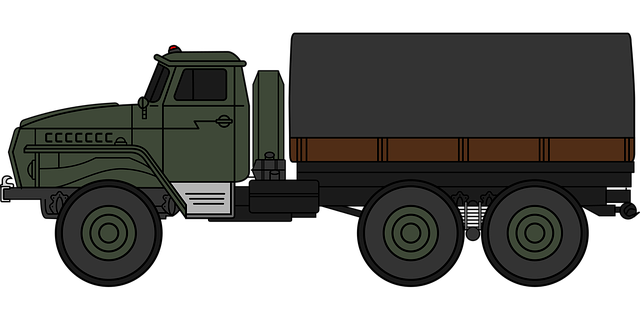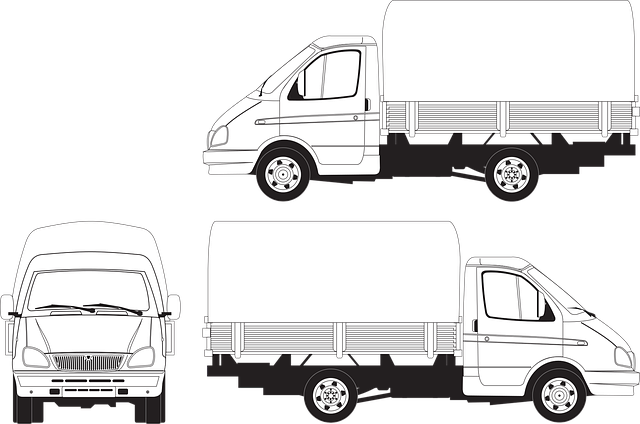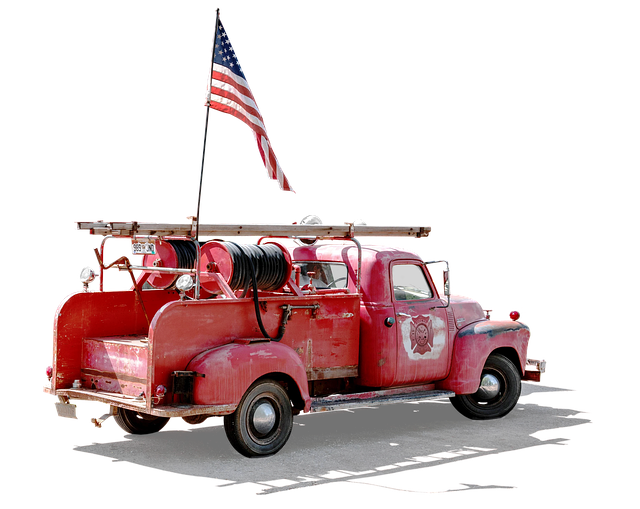In the trucking industry, robust insurance coverage is essential to protect against financial losses and operational disruptions caused by accidents, theft, or natural disasters. Truck insurance policies provide vital protection for vehicle damage, repairs, and liability claims, enabling businesses to quickly resume operations post-incident. A tailored insurance plan that covers physical damage to trucks, cargo liability, and third-party property damage is crucial for owner-operators and fleet managers in the competitive trucking marketplace. It's important for trucking companies to understand and adapt their insurance policies to address the unique risks they face, ensuring business continuity and resilience amidst an ever-changing environment. Strategic risk assessment and management, including vehicle tracking, adherence to safe driving practices, and regular driver training, are key components in maintaining a successful trucking operation. By integrating comprehensive insurance with proactive risk management strategies, trucking businesses can navigate the roads with confidence, safeguarding against unforeseen events that threaten business stability.
Operating a fleet of trucks is a critical component of the supply chain, ensuring goods reach their destinations under various conditions. In an industry fraught with unpredictable risks, from road accidents to natural disasters, maintaining business continuity is paramount. This article delves into the indispensable role of truck insurance as a safeguard against potential setbacks. We will explore tailored coverage options, assess common risk factors specific to the transportation sector, and provide actionable strategies for resilience. By understanding these aspects, businesses can fortify their operations and navigate the challenges of the road with confidence.
- Navigating Uncertainty: The Essential Role of Truck Insurance in Ensuring Business Continuity for the Transportation Industry
- Understanding Your Coverage Options: Comprehensive Trucking Insurance Solutions for Optimal Protection and Reliability
- Assessing Risk Factors: Identifying Potential Challenges to Business Continuity in the Trucking Sector
- Strategies for Resilience: Best Practices for Maintaining Business Operations with Truck Insurance in Place
Navigating Uncertainty: The Essential Role of Truck Insurance in Ensuring Business Continuity for the Transportation Industry

In the dynamic realm of transportation, where the truck and trucking sectors are pivotal to the supply chain’s functionality, navigating uncertainty is a constant challenge. Unforeseen events such as accidents, theft, or natural disasters can disrupt operations, leading to significant financial losses and operational setbacks. Truck insurance serves as a safety net, mitigating these risks by providing coverage for vehicle repairs, replacement, or liability in the event of an incident. This ensures that businesses can maintain their service levels without interruption, as operations can quickly resume with minimal financial impact.
Business continuity is not just about reacting to unforeseen events; it’s also about proactively preparing for them. In this context, truck insurance is more than a legal requirement—it’s an integral component of risk management strategies. It safeguards the fleet against potential financial strains that could arise from vehicle downtime or accidental damage. By securing the continuity of operations, trucking businesses can maintain customer confidence and trust, which are critical for long-term success in the competitive trucking industry.
Understanding Your Coverage Options: Comprehensive Trucking Insurance Solutions for Optimal Protection and Reliability

When it comes to safeguarding your business in the trucking industry, comprehensive insurance solutions are paramount. Owner-operators and fleet managers must navigate a variety of coverage options to ensure their operations remain resilient against potential disruptions. Policies can be tailored to address specific risks associated with hauling goods, from physical damage to cargo liability. It’s crucial to assess the types of vehicles in your operation—single trucks or a fleet—and the nature of the freight being transported to determine the most appropriate coverage. Opting for insurance that covers not just the truck itself but also includes liability for cargo and any third-party property damage ensures a robust protection plan, safeguarding against financial losses due to accidents, theft, or other unforeseen events. This comprehensive approach aligns with the core objective of business continuity in the dynamic world of trucking.
In the realm of trucking insurance, understanding your coverage options is key to making informed decisions that protect your business’s future. A well-rounded policy typically includes physical damage protection for your trucks, as well as liability coverage for third-party injuries or property damage resulting from accidents involving your fleet. Additionally, cargo insurance is essential to cover the goods you are entrusted with transporting. These tailored solutions provide a safety net that allows for peace of mind, knowing that your business can endure and continue operations even in the face of adversity. With the right trucking insurance, businesses can navigate the complexities of the road with confidence, ensuring continuity and operational stability over the long term.
Assessing Risk Factors: Identifying Potential Challenges to Business Continuity in the Trucking Sector

In the trucking sector, business continuity hinges on a comprehensive understanding of risk factors that can disrupt operations. It is imperative for trucking companies to assess potential challenges that may arise from various sources such as road accidents, mechanical failures, and natural disasters. These events can not only halt the movement of goods but also incur significant costs, affecting the financial stability of the enterprise. Identifying these risk factors allows businesses to implement proactive measures, including robust truck insurance policies that cover a wide range of contingencies. By doing so, companies can mitigate the impact of unforeseen events and maintain operational resilience, ensuring that their supply chains remain intact and their services continue without interruption.
The trucking industry operates within an environment fraught with uncertainties that can compromise business continuity. From the volatility of freight demand to the complexities of compliance with transportation regulations, companies must navigate a multitude of challenges. A strategic risk assessment will pinpoint areas where the threat of disruption is highest, enabling businesses to tailor their truck insurance coverage accordingly. This targeted approach to insurance not only protects against direct financial losses but also supports the swift recovery and restoration of operations following an incident. By consistently evaluating and updating their risk management strategies, trucking companies can maintain a competitive edge and ensure smoother business continuity.
Strategies for Resilience: Best Practices for Maintaining Business Operations with Truck Insurance in Place

In the realm of trucking operations, ensuring business continuity is paramount to long-term success. A robust truck insurance policy serves as a safeguard against unforeseen events that could disrupt your business. To maintain uninterrupted operations, it’s crucial to have comprehensive coverage that addresses liability, cargo damage, and physical damage to trucks. Regularly reviewing and updating your policy in line with evolving industry standards is a prudent practice. Additionally, businesses should invest in risk management strategies, such as implementing advanced vehicle tracking systems and adopting safe driving protocols. These measures not only reduce the likelihood of incidents but also minimize potential disruptions to your operations, thereby enhancing overall resilience in the face of adversity.
Furthermore, proactive planning is essential. Trucking enterprises should develop contingency plans for various scenarios, from equipment failure to natural disasters. Having a well-defined plan can significantly reduce downtime and ensure that your operations remain as smooth as possible. Regular training for drivers on safety protocols and vehicle maintenance also plays a vital role in maintaining business continuity. By combining the right insurance with proactive risk management, trucking businesses can navigate the complexities of the industry with greater confidence and stability.
In conclusion, the transportation industry’s reliance on trucks necessitates robust insurance coverage to ensure business continuity amidst various risks. By carefully considering the array of truck insurance options available and understanding the coverage that fits your operation, businesses can safeguard against unforeseen events that threaten their resilience. A strategic approach to risk assessment and adherence to best practices in maintaining comprehensive trucking insurance ensures that operations can continue without significant disruptions. As a result, businesses in the trucking sector can navigate uncertainty with greater confidence and maintain their operational stability, which is critical for long-term success and customer satisfaction. Trucking companies should prioritize these measures to protect their assets and secure their future in the dynamic landscape of transportation.
